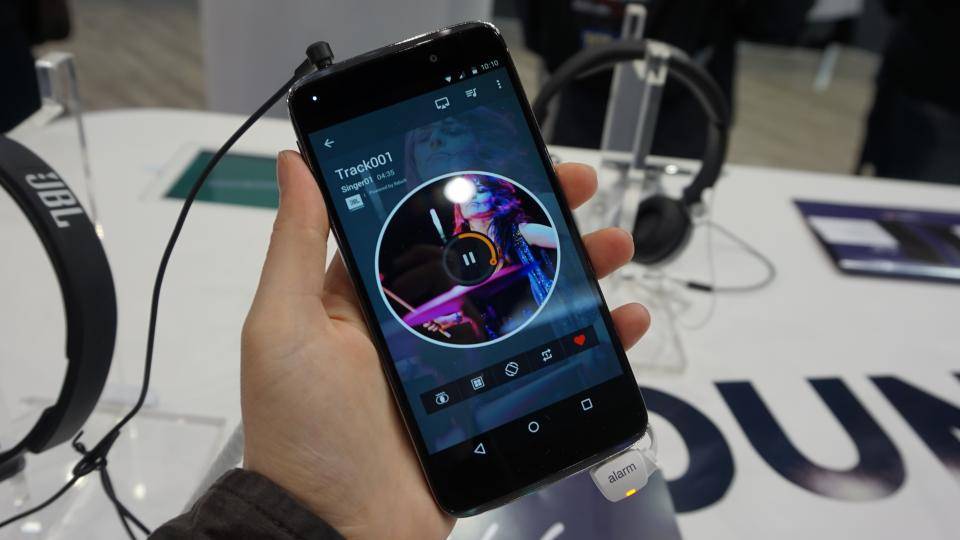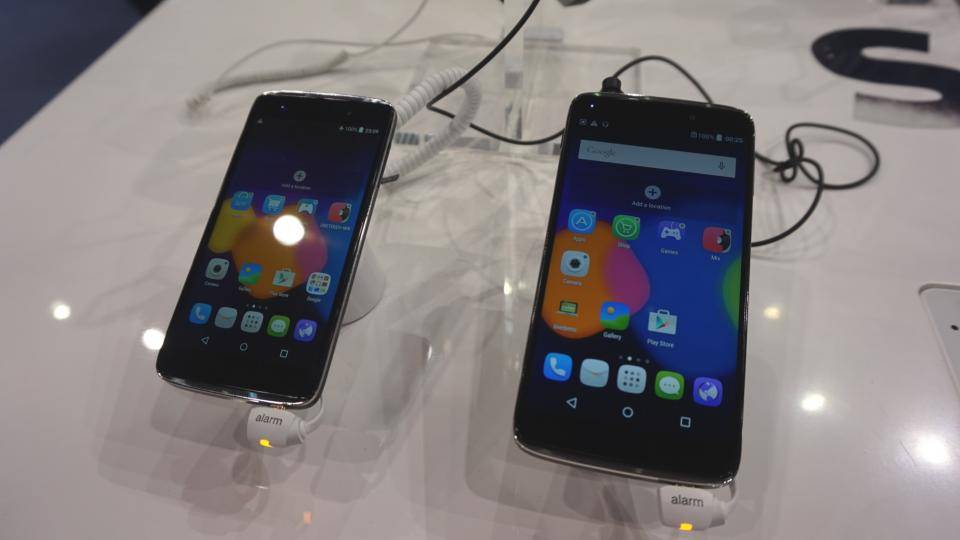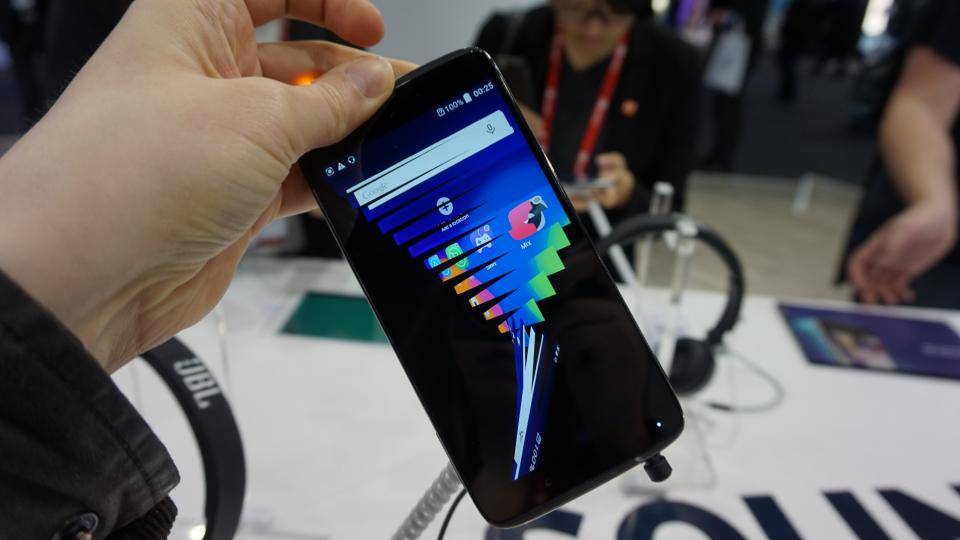Smartphones have had auto-rotating screens for years now, but the Alcatel One Touch Idol 3 goes one step further. With its dual microphones and dual speakers, it's the first phone you can use completely upside down, allowing you to take calls or swipe through its Android 5.0 interface regardless of the phone's orientation.
It should definitely help save time when you're rooting around in your bag trying to answer an important phone call, as its built-in gyro sensors will automatically re-adjust the screen so it's facing right way up. The animation can be a little juddery, but it worked extremely well when we tried it out for ourselves and didn't take much longer than a second to completely rotate.

The One Touch Idol 3 will be available in two sizes - 4.7in and 5.5in - but each one will have vastly different specs. While the 4.7in model will have a 1,280x720 resolution display, a quad-core processor and a front-facing 5-megapixel camera, the 5.5in model will have a 1,920x1,080 Full HD display, an octa-core processor and an 8-megapixel front-facing camera. The larger model is also one millimeter thinner, measuring 7.4mm thick as opposed to the 4.7in model's 7.5mm chassis. Photography fans won't have to worry about chosing between each phone's rear camera, though, as both come with a 13-megapixel sensor.
In terms of design, both phones are identical. While each one is made from plastic, the hairline texture on the front, back and sides helps provide a convincing illusion of a more metallic finish. Around the outer rim, there are also small strips of glossy silver plastic, adding a few highlights to its otherwise fairly plain chassis.

Its rounded edges make each one feel very comfortable to hold, but those glossy strips can make the handset feel a little slippery in your palm. This is more of a problem on the larger 5.5in model, as the phone's wide dimensions make it less easy to use with one hand.
The Alcatel One Touch Idol 3 runs Android 5.0, but its interface is very reminiscent of Huawei's Emotion UI. The app icons in particular look remarkably similar, but fortunately there's still an app tray present so you don't have to clog up your home screens with tonnes of icons.
Another thing that sets the Idol 3 apart from Huawei's version of Android is the One Touch Stream panel that sits to the left of the main home screen, which is part store, part news feed. While we could do without the recommended apps and wallpaper suggestions, you can easily disable these sections and just have your calendar appointments, top news stories and weather updates onscreen instead.

Alcatel's also been working with Technicolor to help improve the quality of the phone's respective screens. With its Technicolor Color Enhance technology, Alcatel says the Idol 3 should be able to produce more vivid images that match the colours you see in the cinema. While we'll have to wait and see how the phone fares in our calibration tests, each screen was certainly very bright and punchy, so we hope Alcatel will be able to deliver on its promise of cinema-quality pictures and video.
Admittedly, we can't see the Idol 3's upside-down screen being anything more than a neat party trick at the moment, particularly as the handset itself isn't quite as easy to grip as we'd like, but it's definitely a handy, practical feature that we never really realised we wanted until we saw it in action. In fact, we're surprised we haven't seen anyone else do it before now, as it's something we very much lamented not being able to do on the Samsung Galaxy Note Edge , for example. In the Note Edge's case, you could turn it upside down to let you use the edge tabs if you were left-handed, but it then forced you to turn the phone the right way up again if you had to take a call, so it's certainly something we'd like to see on more phones in the future.
Both sizes will be available in Europe between May and June, with the 4.7in model costing around £199 SIM-free and the 5.5in around £250 SIM-free, so stayed tuned for our final verdict once we get hold of review samples.

